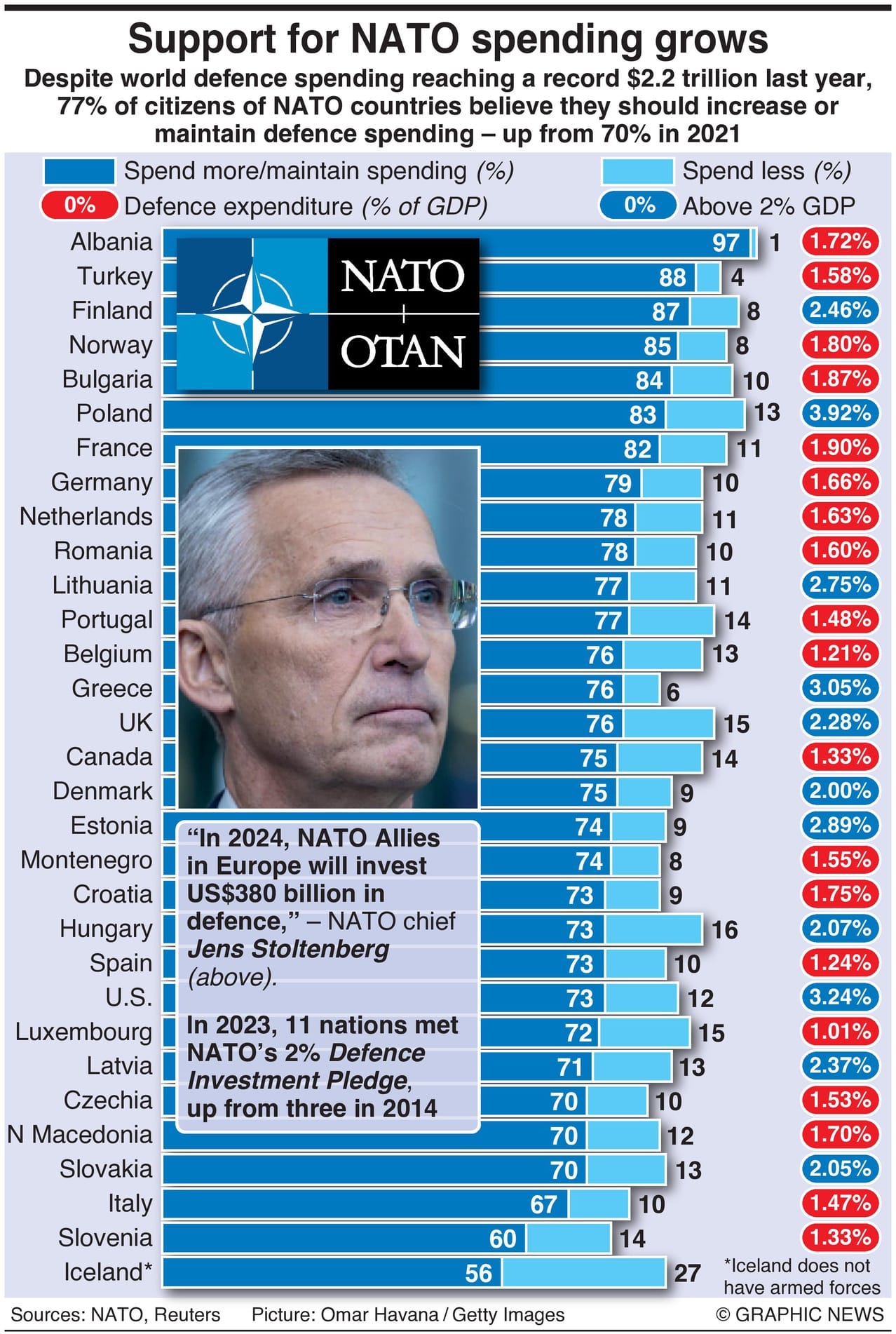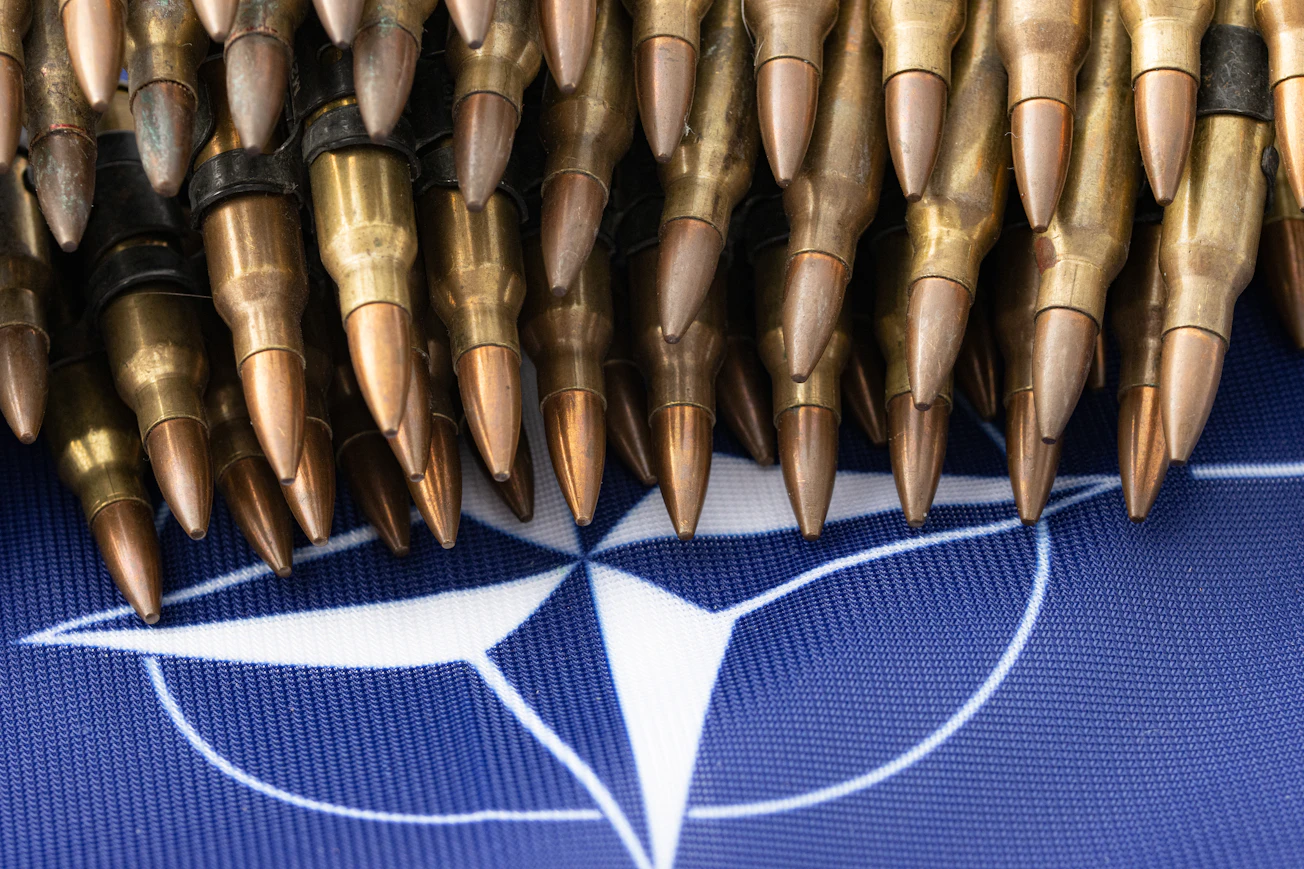The twin threats of Russian President Vladimir Putin’s invasion of Ukraine and China’s territorial claims on Taiwan mean the U.S. and its European allies need to ramp up their defense spending dramatically.

China announced in March that it will boost defense spending by 7.2% in 2024 to 1.7 trillion yuan ($236.1 billion) – the most in five years.
“The percentage rise is the same as last year, and the third year in a row where we’ve see an increase of 7% or more,” Meia Nouwens, a senior fellow at the International Institute for Strategic Studies think tank, said.
In 2023, 11 nations met NATO’s Defense Investment Pledge of 2% of GDP, up from three in 2014.
Security officials caution that military budgets may need to mirror Cold War spending, potentially reaching as high as 4% of GDP. As Bloomberg reported, this could translate into more than $10 trillion of additional commitments over the next decade, a significant financial consideration.
“The post-Cold War ‘peace dividend’ is coming to an end,” said Jennifer Welch, Bloomberg Economics’s chief geoeconomics analyst. That’s likely to have a transformative effect on defense companies, public finances, and financial markets.








